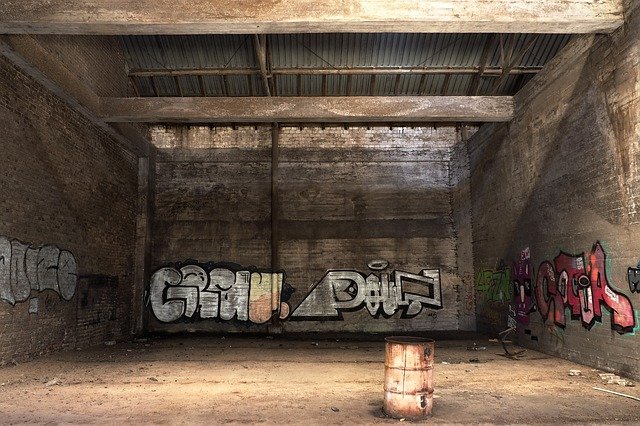Russia has been accused of a lot recently, with the UK government categorically stating that they sanctioned a nerve agent attack on a former Russian spy on British soil. Time Magazine has now stated that Russian officials and businessmen secretly partnered with Venezuelan officials to launch their state backed, controversial cryptocurrency, Petro.

The currency is supposedly backed by oil and was viewed by many as the president’s bid to try and ensure his safety following the country’s considerable financial difficulties, and the Venezuelan President, Nicolas Maduro himself has stated that it represents a way of getting around sanctions imposed by the US and other global governments.
President Trump has passed a law making it illegal for US citizens to buy the cryptocurrency, so is there any hope for what is already looking like a doomed alt coin?
Oil Backed Cryptocurrency
The Petro represents a number of firsts. Notably, it is the first cryptocurrency that is supposed to be backed by oil, although there are serious questions as to whether this is really the case. Maduro has said that each Petro will be worth the equivalent of 1 barrel of oil, and has set aside all of the oil from the Ayacucho block in Orinoco, which has approximately 5 billion barrels of oil. Venezeuala’s oil trades slightly lower than oil from a lot of countries, because it has a high sulfur level, but is still worth approximately $50 per barrel.
Critics have questioned whether it will be possible for Petro holders to claim their barrel of oil. Experts have said that a currency backed by a commodity must be redeemable, otherwise it isn’t fully backed, although Maduro said that the coin will be worth the “equivalent” of a barrel of oil, and not directly that it is worth a barrel of oil.
State Backed Cryptocurrency
Perhaps even more importantly, Petro is the first state backed cryptocurrency. Critics point out that this completely bypasses the non-centralised nature of cryptocurrencies, but Venezuela are not the only country that have mooted the possibility of a state backed currency. Sweden, Singapore, and Estonia are among some of the countries that are likely to be watching on to see how the coin performs, as they are all believed to be considering their own versions.
The problem for investors is that Venezuela’s regime doesn’t have the greatest economic track record. They have taken to printing new money to pay off national debts, and their currency, the bolivar, has undergone years of hyperinflation and is virtually worthless as a result. With Maduro’s regime in charge of Petro, there is no guarantee that he won’t meddle in a similar fashion and bring the currency crashing down.
Maduro’s Human Rights Record
There is also the question of Maduro’s record on human rights. The US and EU have imposed far-reaching sanctions against the country as a result of their authoritarian regime, and Maduro himself has said that the Petro will effectively help them to circumnavigate these sanctions.
Trump Bans US Citizens From Buying Petro
It is likely that Trump would have taken action against the Petro anyway, but blatantly admitting that it was being launched in order to get around sanctions imposed by the US government has clearly acted as a red rag to Trump’s bull.
On March 19th Trump announced an executive order making it illegal for US citizens to buy or trade the Petro. And it seems that he is serious enough about the ban that action will be taken against any citizens that choose to ignore the order.
Maduro Responds
In response to the ban, the Venezuelan government has accused Trump of meddling and has said that they will continue to promote the Blockchain technology and the Petro currency, in order to make it one of the most reliable cryptocurrencies in the world.
Maduro himself tweeted that the sanctions were proof that they were on the right track, and that it was an attack on the Venezuelan people. People that, incidentally, are also unable to buy the Petro because Venezuelan people are not permitted to invest in foreign currencies, and the Petro cannot be bought with the local currency, the Bolivar.
Did Russia Collude On Petro’s Development?
In an additional twist to an already turbulent plot, Time Magazine has claimed that Russian businessmen and state officials colluded on the formation and advised on the development of the currency. The article stated that Dennis Druzhkov and Fyodor Bogorodsky and senior advisors to the kremlin oversaw the development, although the Russian Finance Ministry has refuted these claims. But, then, if they were secretly involved in its establishment, they would be unlikely to simply admit it.
The Petro
Regardless of Maduro’s human rights’ record or even the legitimacy of claims that the currency is backed by crude oil, speculators and investors are still likely to show some interest, if they can see a profit and if they are unaware or don’t care about these facts.
The Petro ICO launched on 21st February and Maduro claimed that £735m was raised in the first day or so of being offered to investors. In order for individual investors to get involved, however, the coin will need to be made available on currency exchanges, and it is a question of whether exchanges want to be associated with the coin or take on the potential wrath of Trump and the US administration.
One thing is for sure, anybody that is willing to invest and interested in the coin, will experience a lot of turbulence in prices, as cryptocurrencies tend to be heavily swayed by news and rumours; both of which have already proven to swarm around Petro and Maduro.